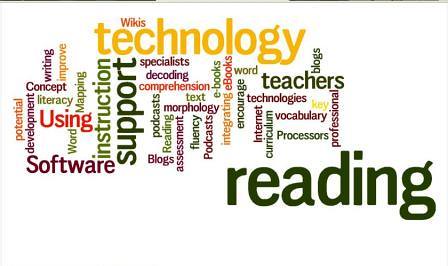Some of my fellow colleagues' blogs have raised the lack of internet and computer access as an obstacle to our future efforts as reading specialists. My message is YES WE CAN!
While the internet is awesome-- many of the resources are FREE and promote collaboration and 'beyond the classroom' learning, there are still many 'low tech' tools available that can engage our students in reading and writing activities. You don't need a computer lab or internet access to incorporate ICT in literacy instruction.
A multimedia projector and a laptop/ desktop computer ( whiteboard-optional)can be used to involve students in whole group and small group activities using WORD, EXCEL, POWERPOINT and PAINT to name a few.
1. Excel-- interactive crosswords that can build students vocabulary
2. Powerpoint--create audio books, interactive games and presentations which build students’ writing , reading, text comprehension skills and fluency
3. Computer and a microphone-- record students reading of text and re- play it for them to listen OR you can record your reading of text and play it for them to repeat- also for students re-telling of stories build on decoding skills and fluency
4. Digital camera/ a camcorder-- take pictures of or record classroom work/activities, then download Photostory or use Windows Movie Player for digital story telling or creating videos of students doing Reading Theater.
5.Bring the internet to your class by downloading clips: video/audio from YOUTUBE, TEACHERTUBE or wherever on to a flash drive and play it on your computer to your class to engage them in writing and reading activities. You will need a 4-8 gb flash.
6. Many students have computers at home so you could make copies of files of activities for your students to take home on their flash drive to practice. There are also CD-ROMS and DVDs that are available.
My school for the first time has placed an audio book on the booklist for the Form one Literature class. Now the stronger students can read the text and the struggling students will have the scaffold of a CD of the book being read by an actor
I created google accounts for my students and whatever ICT assignments we start in school they can email to me to correct once they complete them whether they use the computers in school, at home or the library.
All you really need is some imagination and sharing with like minded teachers and we can move mountains




